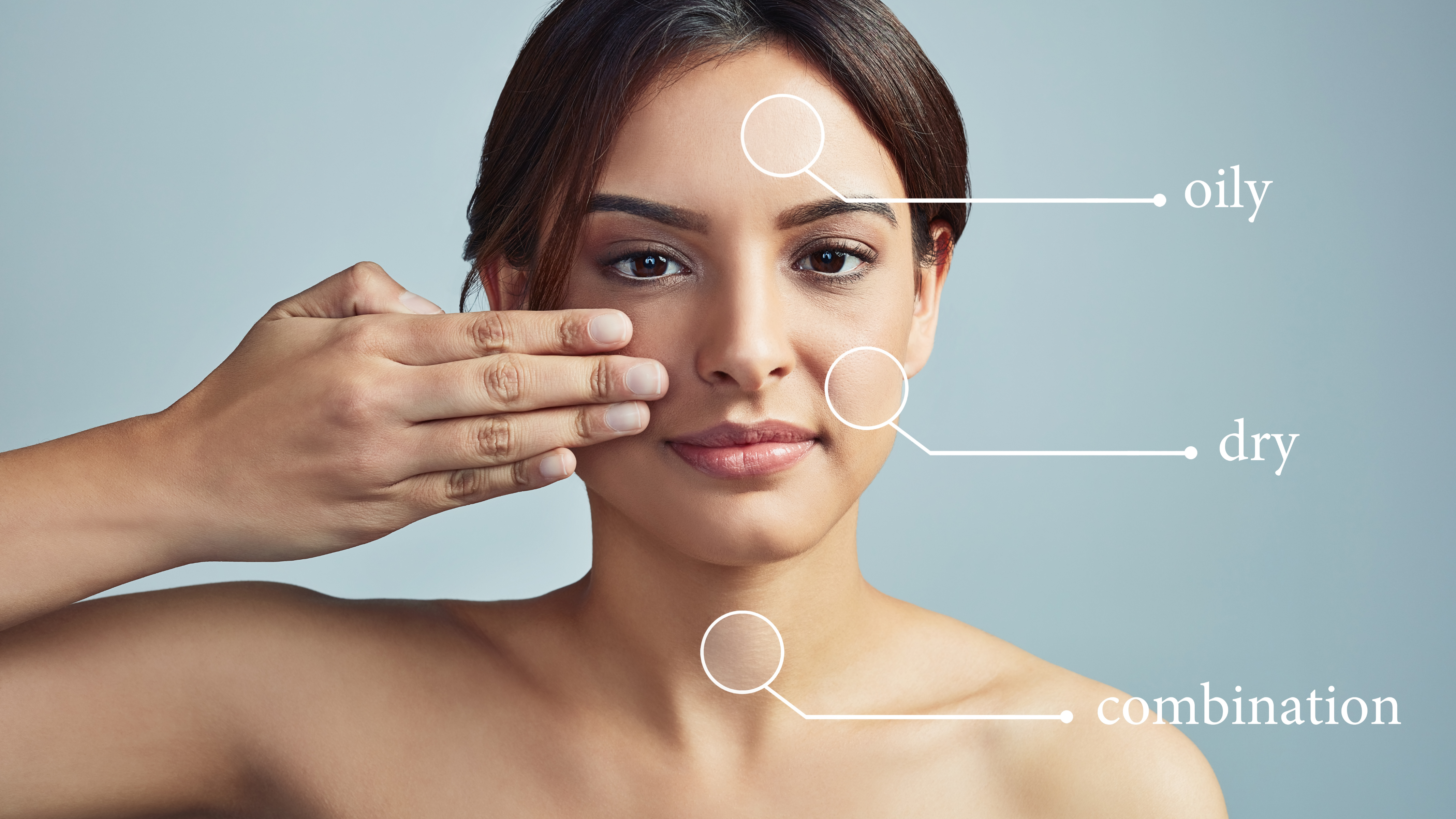Your basket is currently empty!

Unlocking Your Skin’s Secret: How to Determine Your Skin Type and Understand Its Ever changing Nature
Understanding your skin type is the key to achieving a radiant and healthy complexion. Whether you have dry, oily, combination, or sensitive skin, tailoring your skincare routine to meet your skin’s specific needs is essential for maintaining its health and vitality. But, have you ever wondered how to determine your skin type accurately? And, can your skin type change over time? Let’s dive into these questions to unravel the mysteries of your skin.
How to Determine Your Skin Type:
- The Touch Test:
- Wash your face with a gentle cleanser and pat it dry.
- Wait for 30 minutes to let your skin return to its natural state.
- Gently press a clean tissue on different areas of your face: forehead, nose, cheeks, and chin.
- Analyze the results:
-
- Oily skin: Tissue will have oil spots, especially on the forehead, nose, and chin (T-zone).
- Dry skin: Tissue will be clean with no oil.
- Combination skin: Tissue will have oil spots in the T-zone but will be clean on the cheeks.
- Sensitive skin: Skin may feel tight or irritated, especially after the tissue test.
-
- Visual Examination:
- Look for visible signs on your skin:
- Oily skin: Shiny appearance, enlarged pores, and frequent breakouts.
- Dry skin: Rough texture, flakiness, and tightness.
- Combination skin: Different areas exhibit characteristics of both oily and dry skin.
- Sensitive skin: Easily irritated, prone to redness, and reacts to certain products.
- Look for visible signs on your skin:
Do Skin Types Change?
Yes, skin types can change over time due to various factors such as aging, hormonal fluctuations, environmental influences, and lifestyle habits. For instance:
- Aging: As you age, your skin’s oil production may decrease, leading to drier skin.
- Hormonal Changes: Pregnancy, menopause, or hormonal imbalances can affect your skin’s oiliness or dryness.
- Climate: Moving to a different climate or seasonal changes can impact your skin’s hydration levels.
- Skincare Products: Using harsh or unsuitable skincare products can disrupt your skin’s balance, causing changes in your skin type.
Conclusion: Determining your skin type is the first step towards establishing an effective skincare routine tailored to your unique needs. By understanding the characteristics of your skin type, you can select the appropriate products and treatments to address specific concerns and achieve a healthy, glowing complexion. Remember, while your skin type may evolve over time, consistently caring for your skin with the right products and habits can help maintain its health and vitality for years to come.

Leave a Reply